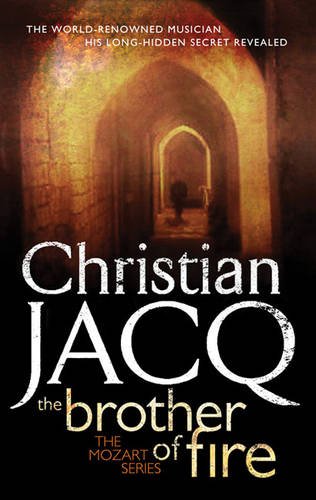The Brother of Fire
Wolfgang Amadeus Mozart seems well established in Vienna. In his late twenties, he and his work are sought after and respected. Life in a large and comfortable apartment brings him contentment with his wife, Constanze, and their son, while the songs of his little comrade, Star the starling, are a comfort and inspiration. The dual mainsprings of his life are music and Freemasonry.
But the Masonic lodges are in disarray throughout Europe. Many of their members want nothing but pillows for their timid souls; Mozart’s fierce dedication is not for them. Emperor Josef’s tolerance has been replaced by censorship, and at this unpromising juncture, Mozart is determined to combine music and Freemasonry in The Marriage of Figaro, followed by Don Giovanni. These works are received with bafflement and hostility or – even worse – mild praise. The deaths of his baby daughter, his father and even Star the delightful starling bring him direst grief, while commissions for new work dry up and poverty threatens his little family. Among his enemies, interestingly the triumphantly successful Salieri is the one who truly understands, values and fears his genius. Christian Jacq’s dissection of Figaro and Giovanni in the light of Freemasonry is fascinating. Witnessing performances of either in future will never be the same.
Europe is falling apart: the Turkish army is on the march, France is in political turmoil. In 1788, Mozart is 32, and readers must try and abandon hindsight until they can read the next, presumably final volume in this series.










